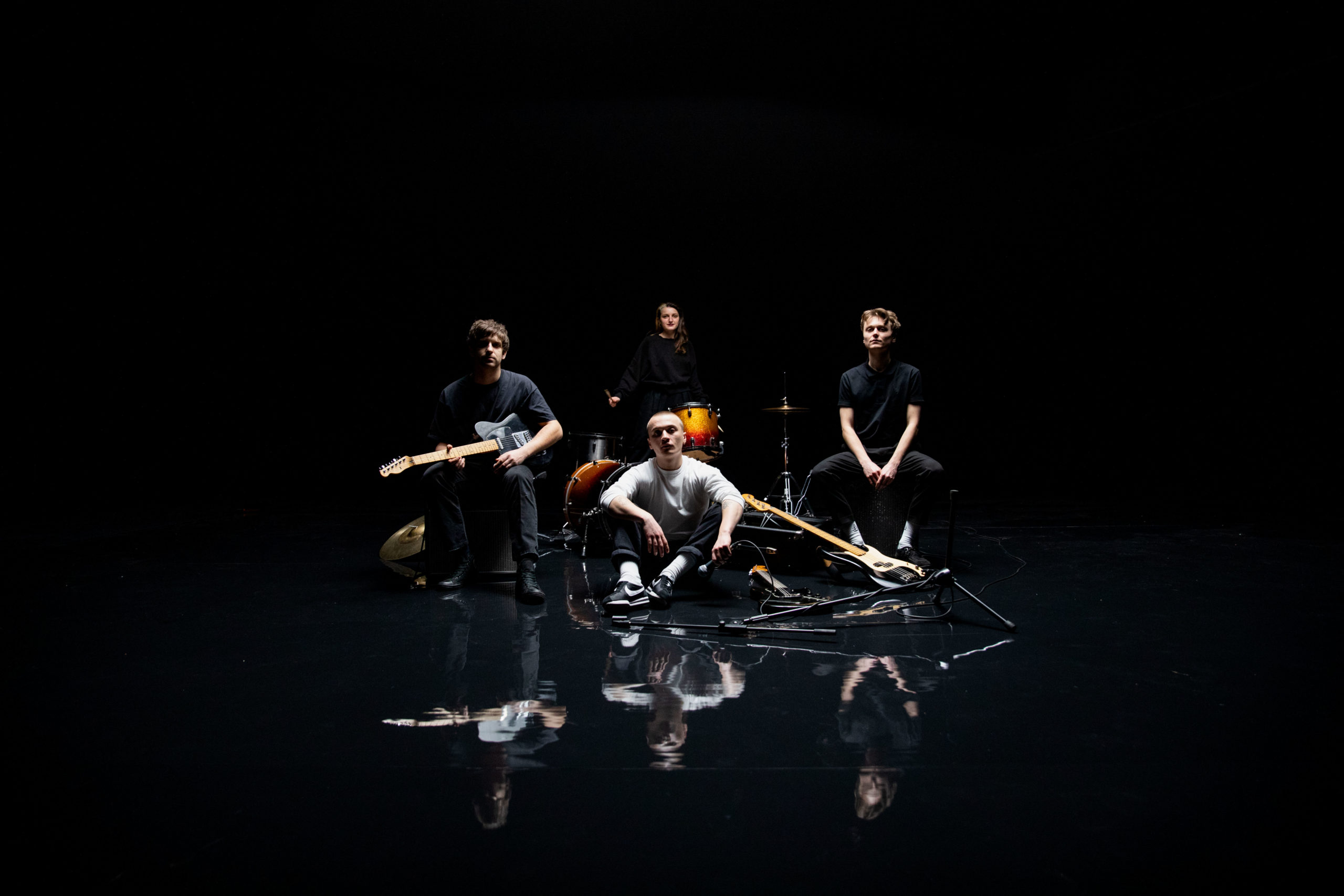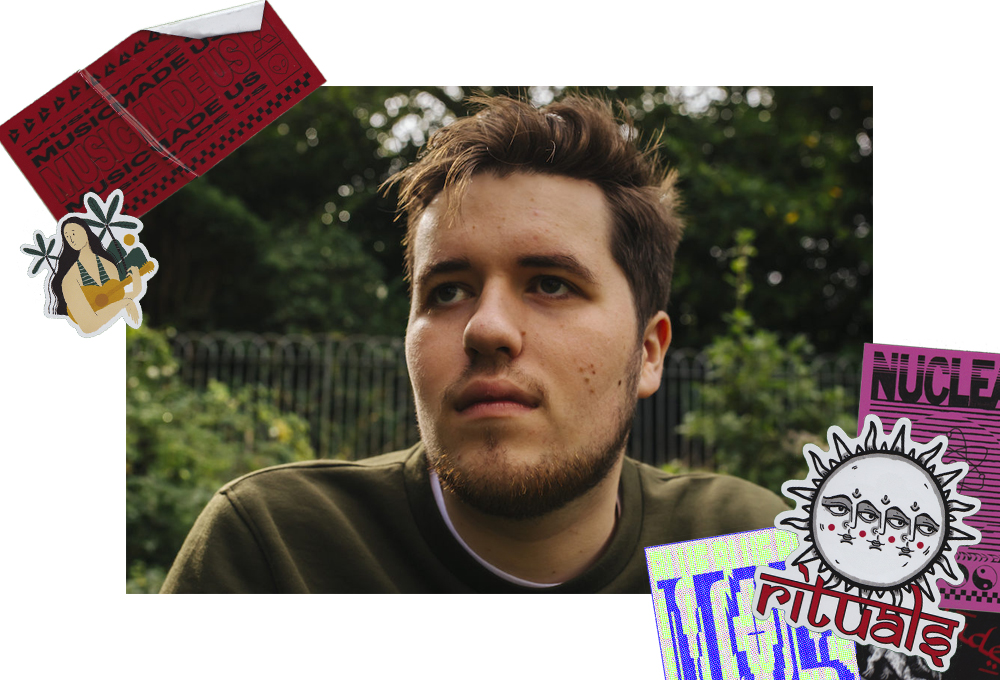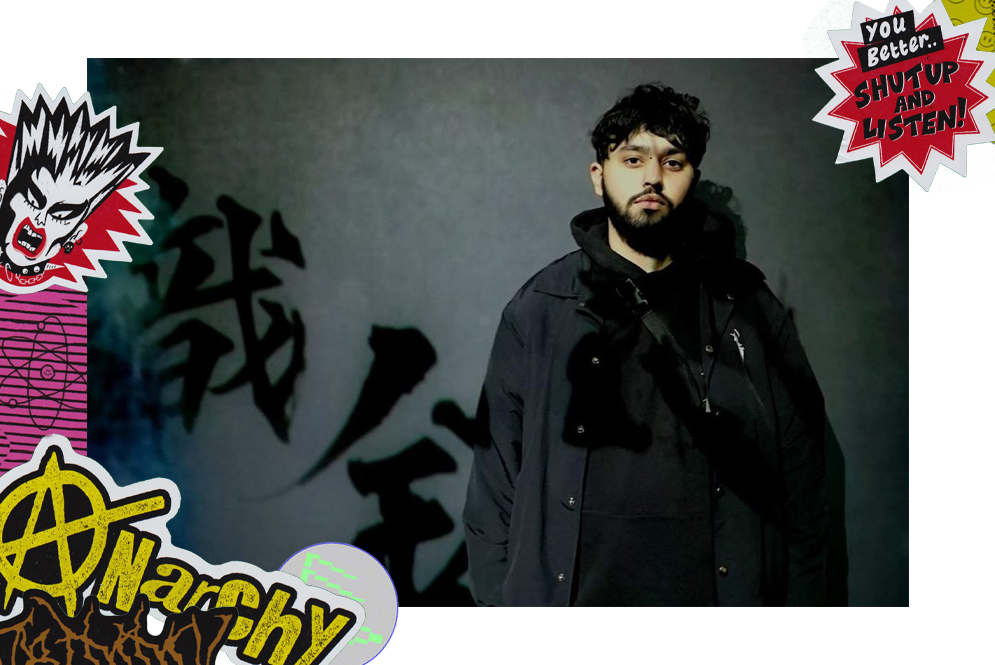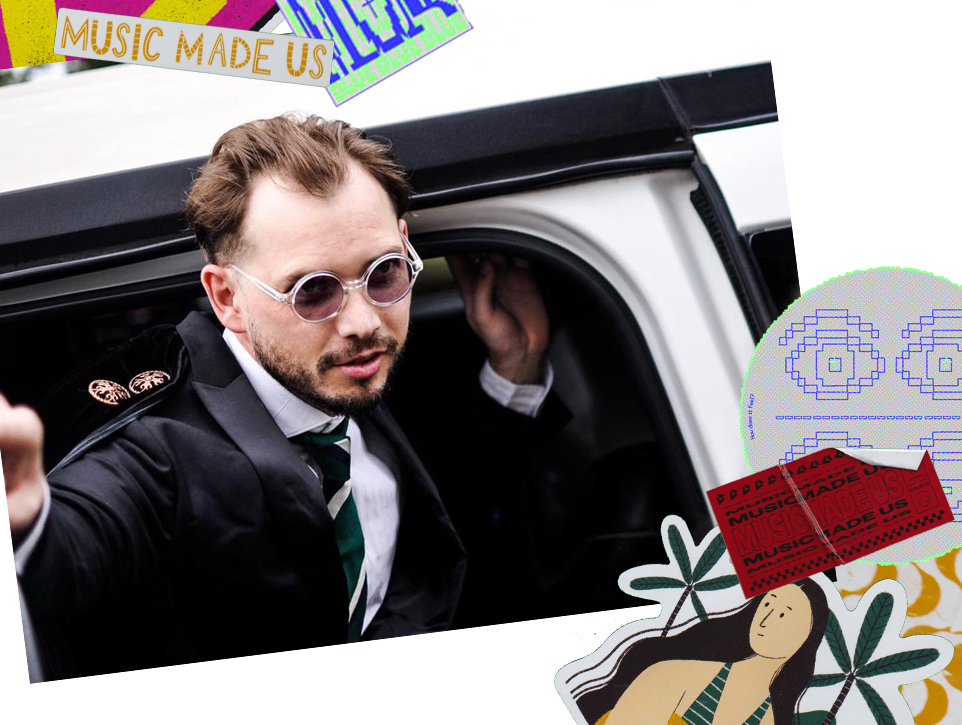Earlier this year, we announced our latest partnership with DIY magazine to celebrate our #MusicMadeUs campaign. As part of this new partnership, students from across our colleges interviewed artists and industry professionals in collaboration with DIY and through the lens of Music Made Us. They also received guidance and mentorship sessions before the interview with DIY’s journalism and editorial team.
BIMM Institute Manchester’s Nathan Evans interviews Talk Show as they discuss embracing the unique, relishing the stage and fighting through financial struggle to make music.
Talk Show makes music that is impossible to sit down for. Coming from South London’s cultivated post-punk scene that includes Shame and Dry Cleaning, they bring a time-warping blend somewhere between Idles and Gang of Four. With a double-single signed on Felix White’s Yala! Records and an unlikely joint effort with house DJ Eli Brown, exciting opportunities are swarming the four-piece consisting of bracing frontman Harrison Swann, drummer Chloe McGregor, bassist George Sullivan and guitarist Tom Holmes. George and Tom join DIY for a conversation about their recent activity, what they’ve missed during the lockdown, and their inner drive to forge an enduring career in music.
Chloe, George, Harrison and Tom met at London’s Goldsmiths University in 2016, where they all came for the same reason – to start a band. The four soon found each other through shared music tastes, such as George and Harrison bonding over New Order and The Stranglers at a house party. However, when they took things to the studio, the outcome was not exactly a smooth click.
We want everyone in here to be their own musician and whatever their background can come together
“I remember we had this idea of what we wanted the band to sound like and then got into rehearsal and realised we don’t sound like that,” explains George. “Chloe [the band’s drummer], for example, has a funk background which wasn’t what we had envisioned, but it sounds good and it’s got energy.” In the end, they embraced each other’s musical corners and met in a robust middle ground. “That’s something we’re always conscious of, we want everyone in here to be their own musician and whatever their background can come together,” George adds.
Of course, ‘coming together’ became impossible amid the big C, and the group adapted to lockdown with mixed results, as George recalls. “When we first went into lockdown, we were doing loads of writing from home and piecing it all together for a few months. It was quite interesting because we’d never done that before, but after a while, we got a bit fed up with writing like that.”
It makes sense; Talk Show’s linchpin is the live setting. Dearly missed is the anticipation of having eyes locked on your show for the night, the view of them bouncing on sticky floors, and even the long drives between shows that are soundtracked by the first Bombay Bicycle Club album nine times out of ten. So sorely is it missed that their recent material has been created from imagining the ghost of a live show. “We’ve done more jams that have turned into tunes, and built that energy and intensity imagining that we’re live with an audience,” Tom says before adding a simple mantra. “If we don’t enjoy playing them in rehearsal, it’s not worth pursuing.”
You need that excitement to write good music
True to their hunt of songs that produce a buzz, their recent collab with house DJ and beatsmith Eli Brown ignited excitement within the band. A unique synergy of Eli’s four-to-the-floor grooves and Talk Show’s post-punk demeanour, Tom notes that despite the awkward fit on paper, “it genuinely didn’t really feel like there was a separation between the two worlds.” The milestone cut illustrates the band’s push to explore a multitude of new things to pour back into their music. Their collective tastes have shifted towards dance music; they regularly see new bands at shows and absorb their energy; Harrison is reading Sam Beckett play scripts for thematic inspiration. Along with all this, George revealed that after ‘Trouble’, the band hit the studio. “We booked a studio and recorded an EP in a 12-hour day, banged out the tracks and kept moving forward with them. You need that excitement to write good music.”
Though the enforced time pressure certainly created the sort of frantic buzz they desire, it was also motivated by making their money go as far as possible. As any emerging band knows, the struggle to fund every part of the journey – from recording to touring and everything in between – means it is essential to think around the constraints and make every penny count. “The more serious it gets, the more it costs. If you want to get on the radio, advertise or go on tour, it’s expensive,” Tom states frankly. Before he delves further into the financial dread of the music biz, George chimes in to turn the conversation to a positive place: “It’s a constant battle, but it’s not really about that, is it?”
And he’s right. The privilege of working with your best mates, scheming, preparing and unleashing your grand spectacle across venues up and down the country is ultimately the freshwater lake that comes at the end of the crawl through the sewer pipe, to use Shawshank Redemption imagery. “You could say that being in a band is a way that gets you through stuff you wouldn’t even know about if you weren’t in a band,” Tom theorises. “On tour, you might be getting down or lack a bit of confidence, and then you play a gig and it goes really well and you come out of it completely rejuvenated.” Music has that effect on people.
Our Music Made Us campaign is told through the students, graduates, journalists, experts and passionate people who have been shaped by this creative outlet. Discover their stories here.
Photo by David J East



